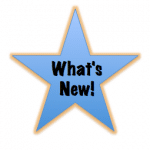What’s New in K-12 Competency-Based Education?
CompetencyWorks Blog
 Teaching and Learning
Teaching and Learning
- Elevating Student Voice in Education, a new report from the Center for American Progress, provides an overview of eight approaches that teachers, school leaders, and policymakers can use to incorporate student voice—such as democratic classroom practices, student action research, and student-led conferences. Learning sciences research suggests that increasing student voice can increase student motivation, engagement, and learning.
- In Learner Variability in the Classroom through Micro-credentials, Wendy Xiao of Digital Promise shares a powerful strategy for developing skills to personalize student learning. A case example and video describe an elementary teacher who is building skills to support student self-regulation, an essential personal success skill.
- The Oakland Unified School District promotes deep community partnerships that lead to authentic, project-based learning. Young Whan Choi, manager of performance assessments for OUSD, describes school and district strategies to enlist community partners to engage deeply with teachers at all stages of project development.
iNACOL Events and Publications
-

The iNACOL Symposium will take place at the Palm Springs Convention Center in California. The iNACOL Symposium will be held on October 28-31, 2019 in Palm Springs, California, with practitioners, policymakers and researchers learning together to shape the future of education. Attendees will gain access to expertise in personalized, competency-based learning. The symposium includes more than 200 sessions tailored to attendees’ professional learning needs.
- iNACOL presents its annual Strategic Reflection on the Field of Competency-Based Education. Join this webinar to gain an understanding of developments in the field, areas of growth, emerging issues, and insights to inform the future direction of competency-based education.
- iNACOL released Modernizing the Teaching Workforce for Learner-Centered, Competency-Based, Equity-Oriented Education, an issue brief that highlights state policy opportunities to modernize professional learning for educators in a K-12, competency-based education system.
Resources
- Transcend has developed a Conditions for Innovation Framework based on their belief that creating and implementing extraordinary, equitable learning environments requires the cultivation of five conducive internal conditions – conviction, clarity, capacity, coalition, and culture. The framework lists the dimensions and indicators of each of these conditions.
- The Utah State Board of Education shared a slide deck providing an overview of their state-wide plan to increase implementation of competency-based learning.
Professional Learning
- EdSurge provides strategies for onboarding teachers in personalized learning models. Kristen Watkins, the director of personalized learning for Dallas ISD, reflects on lessons learned from supporting teachers who are new to personalized learning, which the district has rapidly scaled up in the past three years.
- FutureEd and New Classrooms will offer a lively panel discussion on The Iceberg Problem, a forthcoming report examining how education policies cause hidden learning gaps in math and solutions to this problem. Join online or in person at Georgetown University on Tuesday, September 24, 10:00am–noon.
Research
- Personalized Learning in Practice: An Evaluation of Breakthrough Schools in Chicago from the Wisconsin Evaluation Collaborative shares findings about implementation and impact from a mixed-method evaluation of personalized learning schools in the LEAP Innovations network.
- A rigorous study published in Nature and reported in EdWeek describes an online intervention to promote growth mindset that improved grades among lower-achieving adolescents and increased enrollment in advanced math courses in a nationally representative sample. Gains were modest but meaningful, and the intervention requires less than an hour.
Eliot Levine is the Aurora Institute’s Research Director and leads CompetencyWorks.